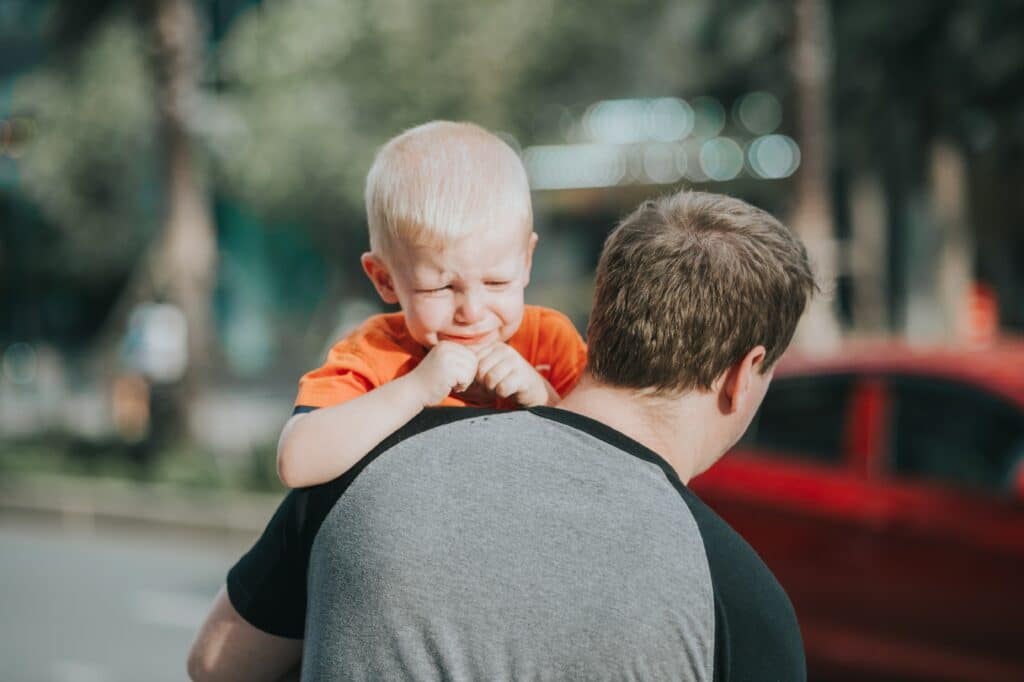No parent wants to think about Child Protective Services taking their children from their homes, but it is possible, especially once CPS initiates an investigation. If you’re under investigation through CPS, a family law attorney with Skyview Law can help you keep your children at home. We’ll take a look at CPS guidelines for child removal in Washington and look at your options.
- Neglect
- Abuse
- Substance Abuse
- Mental Health Issues
- Domestic Violence
- Incarceration
- Unsafe Living Conditions
- Lack of Resources
- Parental Consent
Table of Contents
- 1 CPS Guidelines for Child Removal in Washington
- 1.1 What Is Child Protective Services (CPS)?
- 1.2 How Is CPS Notified of Child Abuse or Neglect?
- 1.3 Overview of How CPS Cases Are Processed
- 1.4 What Happens After the CPS Investigation Process?
- 1.5 How Does CPS Determine Child Removal?
- 1.6 When Does CPS Remove a Child?
- 1.7 Courts Must Review Child Removal
- 1.8 Unlawful Removal of a Child
- 2 9 Reasons CPS Can Take Your Child
- 3 Who is Required to Report Child Abuse and Neglect?
- 4 Frequently Asked Questions
- 4.1 Can CPS remove a child from their home without a court order?
- 4.2 What rights do parents have during a dependency court case?
- 4.3 How can parents access their CPS records after the case is closed?
- 4.4 How long does a CPS investigation typically take in Washington State?
- 4.5 How late can CPS come to your house?
- 5 Family Law Experts
CPS Guidelines for Child Removal in Washington

CPS guidelines for child removal in Washington State follow a specific policy for investigating concerns and removing children from their homes.
What Is Child Protective Services (CPS)?
CPS is a state-run agency tasked with promoting the welfare of all children in the state. It investigates child safety concerns and can petition the court to remove a child from a home it deems unfit.
How Is CPS Notified of Child Abuse or Neglect?
The law requires mandated reporters like teachers and doctors to notify CPS if they suspect abuse or neglect. A concerned family member, friend, or neighbor may also report parents.
Overview of How CPS Cases Are Processed
CPS is required to investigate any report. They will investigate cases where the child is in immediate danger within 24 hours of reporting. In other cases, CPS has 90 days to investigate.
What Happens After the CPS Investigation Process?
CPS may close the case with no other actions taken, petition the court for the removal of the children, or enter an agreement with the parents.
How Does CPS Determine Child Removal?
If CPS deems the parents or living situation as unfit, they will take steps to remove the children from the home.
When Does CPS Remove a Child?
Depending on the situation, CPS can file a dependency case and remove the children once the court approves. CPS can remove children even if the parents aren’t present, but do give notice. Parents can request the children go with an approved relative.
Courts Must Review Child Removal
CPS cannot remove a child without court approval. The court will review the case and determine if the claim is warranted.
Only the police can remove children immediately if there is imminent danger. Police can hold children for up to 72 hours.
Unlawful Removal of a Child
CPS must notify parents immediately of the intent to remove a child. It must also detail what circumstances led to the removal. Parents have the right to say where they want their children placed. CPS must consider the recommendation.
If CPS takes a child without notice or court permission, it’s considered unlawful removal.
9 Reasons CPS Can Take Your Child

You have the answer to the question, “can CPS take your child?” Below are the top reasons CPS could take away a child from their home.
Neglect
Neglect occurs in many households. It’s often not intentional abuse but can still warrant a CPS investigation.
Definition of Neglect
Neglect is when a parent doesn’t meet their child’s needs physically (providing food, clothing, safe housing) and emotionally. Parents may also neglect their child’s education or health.
Examples of Neglect
Examples include:
- Not feeding a child regularly
- Not keeping a child clean
- Failure to give a child the necessary medication
Consequences of Neglect
Neglected children have difficulty trusting others. They may settle for less than they deserve and enter unhealthy relationships as adults. In extreme cases, children may be hospitalized or even die.
Abuse
At least one of every seven children experiences some form of abuse/neglect each year.
Definition of Abuse
Abuse is intentionally harming or endangering a child.
Types of Abuse
Abuse can take many forms.
Physical Abuse
Physical abuse involves using force, like kicking, hitting, shoving, etc.
Mental & Emotional Abuse
Mental and emotional abuse refers to verbal or emotional mistreatment. It can include shaming, threatening, and manipulating a child.
Sexual Abuse
Sexual abuse involves both touching and non-touching actions.
Medical Abuse
Medical abuse, sometimes manifesting as Munchausen syndrome by proxy, involves an adult actively keeping a child unhealthy.
Consequences of Abuse
Consequences include immediate or prolonged physical injuries. Emotional consequences involve a lack of trust, depression, and an inability to form healthy relationships.
Substance Abuse
Substance abuse is a serious problem affecting many families.
Definition of Substance Abuse
Substance abuse is the use of alcohol and illegal or legal drugs in an addictive and detrimental manner.
Impact of Substance Abuse on Children
Children growing up in a home where parents have substance abuse issues are more likely to have depression and anxiety. They’re also more at increased risk of abuse and neglect.
Consequences of Parental Substance Abuse
Substance abuse limits a parent’s ability to care for their child properly. They may abuse or neglect their children, which can lead to CPS involvement.
Mental Health Issues
Mental health issues don’t just affect the parent – they also affect their children.
Definition of Mental Health Issues
Mental health disorders can affect behavior, mood, and treatment of others.
Impact of Mental Health Issues on Parenting
Parents with untreated mental health issues may not be able to parent to the best of their abilities. They may abuse or neglect their children.
Consequences of Parental Mental Health Issues
CPS will get involved if parents with mental health issues aren’t meeting their children’s needs. The goal is to get treatment for the parents.
Domestic Violence
Over ten million people experience physical domestic violence each year.
Definition of Domestic Violence
Domestic violence includes physical, mental, and sexual abuse between family members or romantic partners.
Impact of Domestic Violence on Children
Children in homes with domestic violence often have anxiety, depression, and trust issues. Kids who witness abuse often continue the cycle as adults.
Consequences of Domestic Violence for Children
CPS may question the child about violence in the home. It will remove children even if the violence isn’t directed toward them, as it’s mentally damaging and potentially a safety risk.
Incarceration
Around 2.7 million children have a parent in prison.
Impact of Parental Incarceration on Children
When a child’s parent or parents are incarcerated, kids miss out on essential family bonding time. They may struggle socially and withdraw because they don’t want others to know they have a parent in prison.
Consequences of Parental Incarceration
If necessary, CPS will help children find a home while their parent is incarcerated. CPS will also organize visitation between the children and parents.
Unsafe Living Conditions
Unsafe living conditions can be harmful to children.
Definition of Unsafe Living Conditions
Unsafe living conditions may include an excessively dirty home that’s a health hazard or physically dangerous for kids.
Examples of Unsafe Living Conditions
Unsafe living conditions may be caused by homes with too many pets or excessive mess that could be unsanitary. Houses without running water and electricity might be unsafe. Other unsafe conditions may be a roof that’s caving in or broken windows.
CPS can remove a child from a home if the child is being neglected, abandoned, abused, or uncared for. This can include a messy house or an unclean living environment. CPS must determine if the child is at risk and if the environment is harming them.
Consequences of Unsafe Living Conditions
Kids living in unsafe conditions are more likely to get sick or injured, and they are also at risk of not getting the proper nutrition needed.
Lack of Resources
Some parents don’t have the necessary resources to raise their children.
Definition of Lack of Resources
A lack of resources may mean that parents can’t meet their children’s needs or cannot provide them with a place to live.
Examples of Lack of Resources (Financial, Housing, Medical)
Some parents lack the funds to provide their children with food, clothes, toiletries, and other basic needs. Parents may not have a suitable home or afford medical services for their children.
Consequences of Lack of Resources
When kids’ basic needs aren’t met, they struggle physically and emotionally. Kids may have trouble focusing in school and may suffer from malnutrition. They may not get the medical care they need.
Parental Consent
While not common, some parents consent to CPS taking their children.
Definition of Parental Consent
Parental consent is when the parent permits their children to be removed from their home. CPS typically grants parents the right to express whom they’d like the children to live with.
Examples of Parental Consent
If parents know they are in an unsafe situation or their home isn’t fit for their children, they are often willing to let CPS take them to keep them safe.
Consequences of Parental Consent
Parents may be able to work with CPS to create an action plan for getting their children back. They may also petition to have their children returned.
Who is Required to Report Child Abuse and Neglect?
In cases of child abuse, you might be wondering when to call CPS. Any person(s) who believes that a child is suffering child abuse and neglect should report the incident immediately.
If you are one of the following you are legally required to report child abuse and neglect:
- Medical Staff & Practitioners
- Social Therapists
- Social Service Counselors
- School Staff (teachers, principles, substitutes)
- Police
- Child Care Providers
- Juvenile Correction Officers & Employees
- DSHS Employees
- Placement Specialists
- State Employees
Frequently Asked Questions
Can CPS remove a child from their home without a court order?
CPS has the right to remove a child from their home in any case of emergency—this is called Emergency Removal. CPS is granted the authority to place the child or children in temporary care until such time that the court can intervene. Due process is still followed, and parental rights are considered. CPS is required to assess the safety of the home before the child is returned. For more information refer to the CPS Washington State Comprehensive Guide.
What rights do parents have during a dependency court case?
Parents have important rights during a dependency court case, including the right to legal representation that ensures a lawyer guides you through the court process. Parents also have the right to present evidence and be directly involved in any discussion governing their child’s future. You have visitation rights to maintain a relationship with your child, and reunification services may be offered to help you regain custody. In extreme cases, parental rights may be terminated in the best interest of the child. An unfit parent (as deemed by the court) may lose parental rights.
How can parents access their CPS records after the case is closed?
Parents can request and access CPS records after a case is closed. Your privacy rights and freedom of information can be exercised by submitting a record request. By engaging in this process, parents can obtain post-case information to better understand their parental rights. Closed case information is also accessible, and you can obtain the records you need by following the record request process.
How long does a CPS investigation typically take in Washington State?
Several factors influence the duration of CPS investigations in Washington State, such as:
- The complexity of the case
- The availability of witnesses
- The available evidence
- The caseload of CPS workers
The role of CPS caseworkers is crucial, as they can interview involved parties, gather information, and assess a child’s safety. Any false allegations can have very serious consequences—they divert resources from genuine cases, rob caseworkers of valuable time, and harm innocent families. It’s paramount that you have legal representation during any CPS investigation to ensure your rights are protected. There are several support services available to families who cannot afford legal representation, and organizations that provide assistance and guidance. A CPS investigation can have an enormous impact on a child’s well-being; it’s important not to underestimate an investigation and to provide the child(ren) with reassurance and support throughout the process.
How late can CPS come to your house?
CPS doesn’t require your permission; they can come to your house at any time. CPS also doesn’t need a warrant to enter your home and can interview your children without your permission. They can also remove your children from the home if they have a court order.







